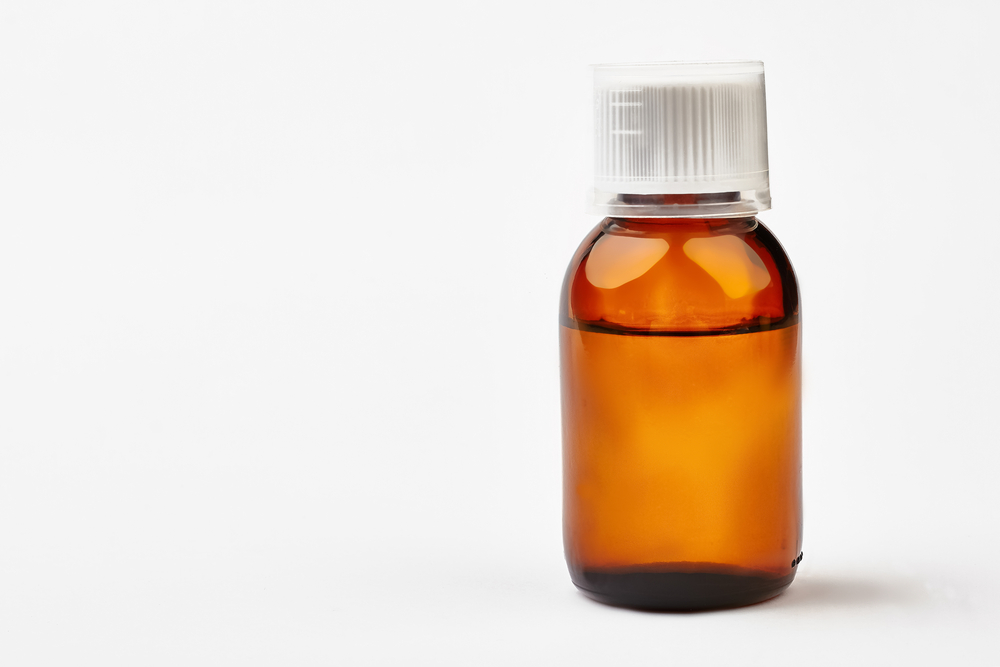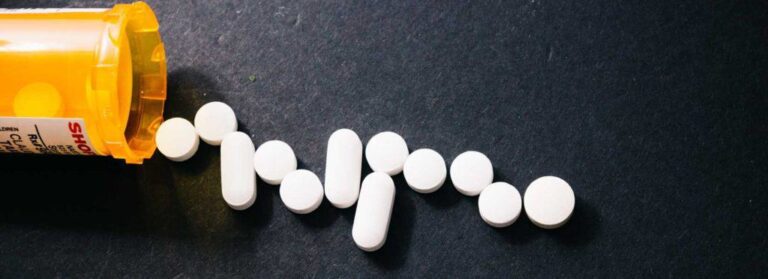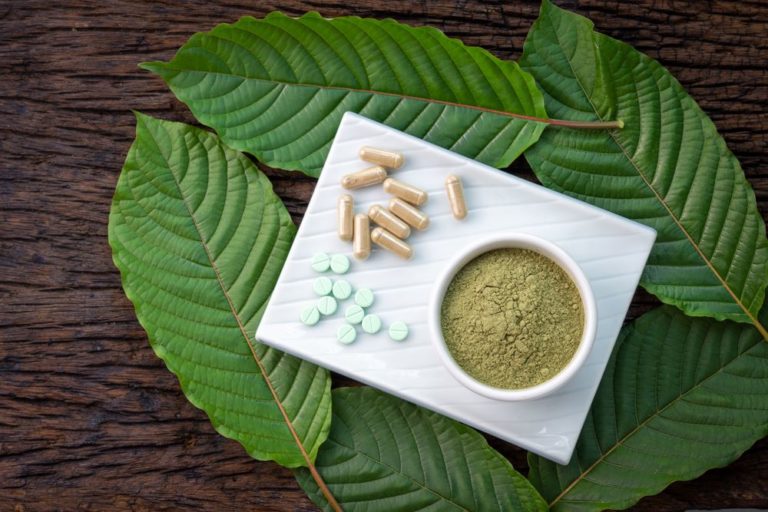Codeine Crazy – Cough Syrup Addiction: A Complete Guide
Codeine cough syrup has been widely misused for decades, especially by teenagers wishing to get high or drunk without stealing liquor or paying for illegal drugs. Many people have abused this medicine because it is available for purchase; however, since the alcohol has been removed and codeine-based cough syrups have been restricted, patterns of codeine abuse in the US have changed.
Codeine use often begins innocently with a prescription for a codeine-based cough syrup. Codeine, like Morphine and Hydrocodone, is relatively easy to get and abuse despite the fact that it is chemically similar to these drugs. Continue reading to learn more about codeine cough syrup including its effects, dangers, and treatment options if you or someone you know is struggling with this addiction.
What is Codeine?
Codeine, one of the most frequently prescribed opioid narcotics in the world, is a short-acting analgesic with most outcomes lasting a few hours. It is derived from the opium poppy plant. Other opiates are heroin, Vicodin, hydrocodone, OxyContin, and Demerol. Codeine is usually given to relieve mild-to-moderate pain, manage a persistent cough, and alleviate occasional gastrointestinal issues such as diarrhea. Codeine is usually administered directly as directed by a physician to manage a medical condition and is not addictive for most people, although some individuals do become addicted.
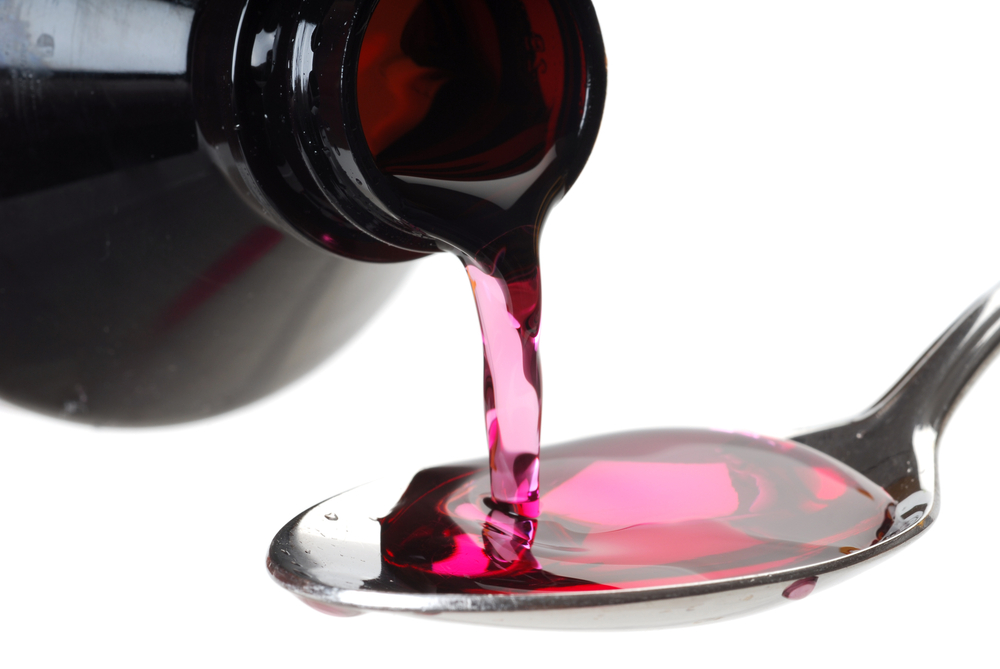
Many people consider codeine to be a wonder drug for alleviating symptoms, but codeine addiction is not one. Abuse of codeine and other narcotics can cause serious health and personal issues, just as any other addiction. Codeine is frequently abused because it is an opiate that produces a mild high. As a result, many addicts begin to abuse more powerful and dangerous drugs in order to achieve a more intense high. In addition, some individuals abuse codeine and stimulants in order to moderate the side effects of the stimulants and achieve a more mellow high.
When is it Prescribed?
Codeine is prescribed to alleviate mild to serious pain and reduce coughing. Codeine is frequently combined with other drugs, such as acetaminophen or promethazine, in both prescription pain medications and over-the-counter (OTC) cough and cold medications.
How Does Codeine Cough Syrup Work?
Codeine dulls the cough reflex by acting on the brain to block pain signals when used to control coughing that is unable to be controlled by non-narcotic cough suppressants. When used to relieve mild-to-moderate pain, codeine blocks pain signals sent from the brain to different parts of the body.
How Common is Codeine Cough Syrup Abuse?
According to the DEA, 10% of adolescents abused codeine cough syrups in 2014 to get high. In 2008, the Substance Abuse and Mental Health Services Administration (SAMSHA) reported that 3 million adolescents and young adults, mostly between the ages of 12 and 25, had used cough or cold medicines to get high; this included codeine-based cough syrup and over-the-counter DXM medications. Codeine-based cough syrups are also a component of hip hop culture, and many celebrities have ended up in the hospital or dead as a consequence of the mixture, or because they combined “sizzurp” or “lean” with other intoxicants such as marijuana.
What is Lean?
Codeine is combined with cough syrup, soda, hard candy, and the antihistamine Promethazine to make Lean, a purple drink commonly known as Sizzurp, Purple Drank, and Dirty Sprite, among various other names. Lean became very famous in the late 1990s when artists and other rappers referenced it in their songs. Because Lean is not a commercialized product, the components and quantities are varied, which makes studying and understanding the consequences difficult.
Because cough syrups no longer contain alcohol, individuals often mix it in themselves. Some cough syrups contain dextromethorphan, a cough suppressant that replaced codeine in over-the-counter cold and flu remedies. It is also a sedative and dangerous substance and has become a favorite target for abuse. Promethazine is another drug that is frequently found in cough syrups. Codeine has been rescheduled by the DEA to require a prescription so that it is no longer available over the counter, and both federal and state authorities monitor these prescriptions, as well as sales of cough syrups.
Who Abuses Codeine?
According to one Addictive Behaviors study published in 2013, men, Native Americans, Hispanics, urban students, and LGBT individuals are more prone to abusing codeine. In southern US culture, “purple drank” refers to syrups containing codeine mixed with soda or alcohol. Codeine has been referenced in southern rap music, and certain athletes have even been associated with it.
According to the National Institute on Drug Abuse, nearly 470,000 American adolescents abused prescription painkillers, such as codeine, for nonmedical purposes in 2014 alone. A sizeable amount of these individuals, 168,000 individuals to be specific, were considered to have an addiction. Polydrug users often mix codeine with cannabis or alcohol, thus making it potentially addictive.
Current heroin users may want to use codeine to mitigate withdrawal symptoms, whether they want to quit or their access to heroin is restricted, to alleviate withdrawal symptoms. This is not safe and always requires medical detox for heroin and prescription painkiller withdrawal. Codeine, even without producing a euphoric high, stimulates the brain’s reward center, reducing craving and physical symptoms of withdrawal, making it an extremely dangerous opioid.
How Addictive is Codeine Cough Syrup?
Codeine used for more than three days can cause addiction. Doctors should not prescribe more than a seven-day supply of codeine to reduce their patients’ risk of addiction. The more codeine someone takes and the longer they take it, the higher the risk of addiction. Besides suppressing coughs, cough syrup containing codeine produces a pleasurable and calming effect in the recipient. Because it stimulates the pleasure receptors in the brain and entices the user to want to continue having that effect, it entices the user to consume more of the medicine.
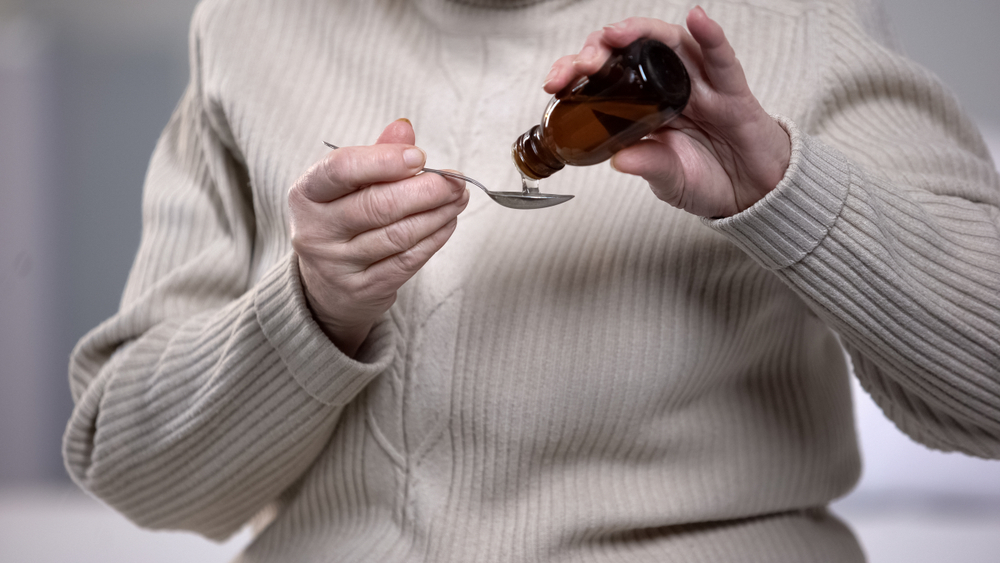
Signs of Codeine Abuse
The most frequent side effect of codeine-containing medicines is nausea, especially in cough syrups. Although there are some indications of opioid abuse, those who take more than the recommended amount of one of these medications are likely to become nauseous. Therefore, they may also keep anti-nausea medications on hand. Other side effects of codeine abuse include:
- Mood swings
- Depression
- Drowsiness
- Anxiety
- Decreased appetite
- Weight loss
- Constipation
- Nodding off
- Slowed breathing
- Itching
Dangers of Codeine Abuse
Long-term codeine use is associated with lung infections, bowel damage, sleep problems, irregular heartbeats, and brain damage, in addition to physical injuries. Drug addiction has a significant effect on life satisfaction beyond its physical consequences. As an individual becomes increasingly focused on getting and using the drug, personal and professional obligations suffer. The individual may lose friends, have issues with family members, and have trouble going to school or work as a result of his or her drug habit. Sleepiness and mood swings cause nearly impossible concentration as a result of chronic drowsiness.
Once an individual becomes hooked on an opiate, it is difficult to quit using the substance because the brain stops producing its own chemicals that stimulate the pleasure center. After a sufficient amount of tolerance has built up, an addicted person must take the opiate just to feel any level of satisfaction. Anhedonia, the inability to experience pleasure, is a common indication of opiate addiction.
Can You Overdose on Codeine?
Due to the fact that opioids suppress respiration all the way to oxygen deprivation while an individual is sleeping, it is quite easy to overdose on codeine. Emergency personnel may have difficulty treating an overdose of this drug because mixing opioids and alcohol enhances the consequences of both drugs. When used alone, opioids and alcohol are two of the most addictive substances in the U.S., so mixing them can result in serious health problems, tolerance, addiction, and overdose quickly.
Signs of a Codeine Cough Syrup Overdose
Codeine is a less powerful opioid than others, but it can still cause accidental overdose and death. Codeine depresses the central nervous system, which regulates critical functions like the heart and breathing. This substance, when combined with other opioids or alcohol, may result in dangerously slow breathing, lowering the brain’s oxygen supply. Coma, brain damage, and even death may result if the individual loses enough oxygen to the brain.
A report by the Centers for Disease Control and Prevention revealed that opioid overdose deaths have risen by 200% since 2000. An overdose should be regarded as a medical emergency, and emergency medical services should be contacted immediately. Symptoms of a codeine overdose include:
- Dizziness
- Muscle weakness
- Slowed breathing
- Clammy skin
- Unconsciousness
- Low blood pressure
- Muscle twitching
- Intestinal spasms
- Blue-tinted skin and fingernails
- Weak pulse
It is crucial to act quickly enough to prevent brain damage caused by oxygen deprivation in an opioid overdose, but the pleasure center of the brain can be blocked by an overdose with opioid antagonists. Liver damage may occur if the acetaminophen found in common over-the-counter cold medicine (or even opioid withdrawal symptoms) is mixed with other substances. Acetaminophen is broken down into a substance that is quite toxic to the liver, and if the liver is filtering a large number of opioids at the same time, it may cause serious permanent damage.
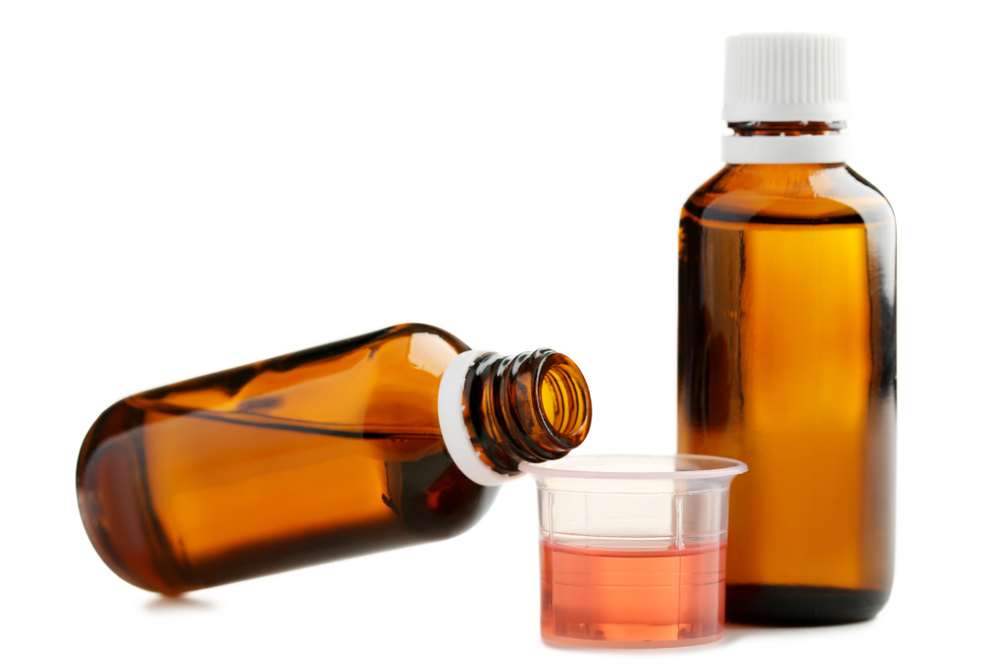
Treatment for Codeine Abuse and Addiction
Codeine has the potential to cause irreversible damage if it is not treated or helped adequately. Cravings for this addictive mixture, seeking it out instead of doing other important tasks, losing money, or encountering legal issues as a result of using it are all signs that it has become addictive and that help is needed. Those with substance abuse issues may seek help on their own or their family may intervene and ask them to quit and attend treatment.
Detox
Codeine abuse poses a multitude of problems, the most severe of which is the withdrawal symptoms—most of which can be alleviated through supervised medical detoxification. Codeine withdrawal symptoms, irrespective of how mild, include sleep problems and melancholy. Codeine is much less potent than other opiates like heroin, yet it still produces uncomfortable withdrawal symptoms. Other symptoms of codeine withdrawal may include:
- Cold flashes
- Muscle aches
- Insomnia
- Diarrhea
- Irritability
- Body tremors
Codeine detox should always be supervised by a physician. Severe dehydration or vomiting may result from cold turkey detoxification. Suboxone, a prescription medication containing buprenorphine and naloxone, is frequently prescribed to help addicts safely detox from codeine. Other drugs, in addition to Suboxone, may be used to assist addicts in recovering from codeine addiction. It is critical not to use more drugs than are necessary to help with recovery in order to avoid addiction.
Inpatient Rehab for Codeine Addiction
Those addicted to codeine frequently begin intensive addiction treatment at an inpatient rehab center. Inpatient facilities provide group therapy and support to help recovering addicts abstain from codeine and live healthy, happy lives. Everyone receives comprehensive care, including those with co-occurring mental health issues and substance addictions, to ensure their treatment is effective. Those addicted to codeine may receive uninterrupted care without the stress and temptations of the outside world during inpatient rehab. A substance abuse problem can be treated in an inpatient rehab facility for a period of 30 to 90 days, depending on how severe the addiction is.
Outpatient Rehab for Codeine Addiction
Patients in outpatient treatment live at home with family members or in a sober living facility. People who do not have a strong social support system may have difficulty completing treatment while living in the community. For other people, however, outpatient rehab can be beneficial. Because they do not live onsite at a rehabilitation center, patients who receive outpatient rehab are able to continue working and caring for their families between sessions. Group and individual therapy, in addition to support group gatherings, are frequent in outpatient treatment.
It is possible to schedule outpatient treatment sessions around other responsibilities. Some people begin their codeine addiction treatment journey with outpatient treatment, while others transition to outpatient treatment after completing inpatient treatment. Regardless of how successful inpatient treatment is, some people are reluctant or unprepared to return to daily life after finishing that type of treatment program. In that case, outpatient rehab would also be highly beneficial.
Get Help For Your Codeine Addiction at Oasis Recovery
Codeine cough syrup abuse is extremely dangerous and can cause irreversible, life-threatening complications if treatment is not provided. It is crucial to seek professional help at an addiction treatment facility if you or a loved one is struggling with this addiction.
Oasis Recovery Center uses a patient-centric rehabilitation approach to provide individualized care. Every patient is evaluated by the medical and clinical team when they first enter our program to create individualized treatment plans addressing their every need. Addiction recovery is difficult but not impossible. You or your loved one can get the assistance you need to lead a fulfilling, sober life with the help of our professionals.
Please contact us immediately to learn more about our numerous treatments and services. You no longer must struggle with codeine addiction alone. Recovery is closer than you think.



